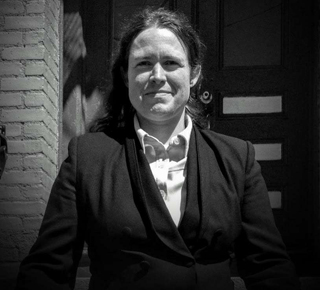Our understanding of mental health has progressed from blaming demons (dark ages) to blaming childhood (Freud) to blaming DNA and neurochemicals to… going back to blaming childhood. However, this doesn’t represent mere sociological fads. Cutting edge developments in medicine have refocused our attention onto the importance of childhood trauma when it comes to the development of mental illness.
Freud got the world’s attention when he said mental illness was caused, at least in part, by what happened in childhood. There are huge parts of his theories no one takes seriously anymore, his work was done with very little scientific scrutiny or objectivity, but the idea that what happens to us in childhood affects us for the rest of our lives made a lot of sense.
How can we tell someone to “just get over it” if their brain clearly isn’t working properly?
As modern medicine progressed towards an understanding of cellular and sub-cellular processes, doctors were able to prove that people with mental illness had electrical and chemical differences in their brain. This helped destigmatize mental illness; how can we tell someone to “just get over it” if their brain clearly isn’t working properly?
And in the ‘90’s, as the human genome; the sum total of all our DNA, the blueprint of our life processes, was being decoded, we looked to genetics as an answer to all our health problems, both mental and non-mental. Lots of scientists published lots of papers claiming they found a link between a particular gene and a particular malady- physical or mental. Many of those papers proved dubious, with results that couldn’t be duplicated. And with only a few exceptions, researchers found links between genes and health that were at best fuzzy and variable, not nearly as clearcut as a high school genetic lesson would lead us to believe.
Also in the 1990s another significant piece of research was being conducted that helped tie all this together. The Adverse Childhood Experiences (ACE) Study proved that ten traumas are so severe they caused permanent impairment to adult health. Some of the harm was clearly though mental distress caused by the trauma and unsafe coping mechanisms; drugs, smoking, eating disorders, etc.. More startlingly, some of it was due to cellular and sub-cellular responses to stress that cause permanent changes in a child’s immune, endocrine, nervous and other systems.
In the last 20 years, the ACE study has been duplicated again and again, at the same time more and more research money has gone into understanding cellular and genetic causes to mental illness. And now doctors in the UK are starting to see the error in that. While fixing one patient’s brain seems less daunting than preventing abuse, neglect, maltreatment and horrifyingly stressful lives in all children, prevention is clearly the best way to promote health.
More and more researchers realize this, but unfortunately the research-funding infrastructure shifts gears slowly. A recent article in the Telegraph reports “It’s a tragedy, actually. The UK Medical Research Council is one of the biggest funders of medical research in the UK, but if you look at things they fund, by far the majority are things like brain scanners or gene sequencing machines, almost none of it is going towards understanding psychological mechanisms or social circumstances by which these problems develop.” Prof. Richard Bentall.
The good news is that a lot is known about how to prevent ACEs. Things like Maternal Home Visiting, The Quincy Solution and good laws and policies concerning child sexual abuse all can drastically reduce ACEs and their impact on physical and mental health. Spending money to better prevent ACEs, analyze the results, and improve implementation strategies will make all of us healthier.

Melanie Blow
Executive Director, Stop Abuse Campaign
A survivor of incest, psychological abuse and a host of other childhood trauma, Melanie now uses her talents to prevent Adverse Childhood Experiences. Melanie has over a decade of legislative advocacy regarding children’s issues, and she has been published in newspapers, magazines and blogs all across the country.
Melanie has an ACE score of 6.
